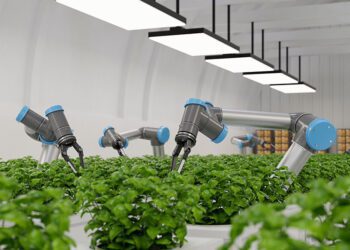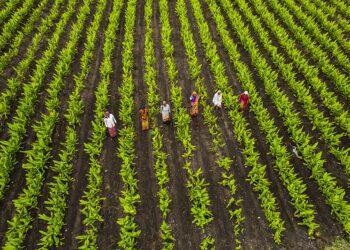Water, often dubbed as ‘blue gold’, is at the heart of agriculture. In India, a country known for its agrarian roots and where the majority of its freshwater resources are directed towards farming, conserving water is not just a priority but a necessity. As the Indian subcontinent grapples with the dual challenge of dwindling water resources and an ever-growing population, innovative water conservation techniques in agriculture are paving the way for a sustainable future.
1. Drip Irrigation: Efficient Use of Every Drop
Traditional flood irrigation techniques often lead to substantial water wastage. Drip irrigation stands out as a solution, ensuring that water reaches directly to the plant’s roots, reducing evaporation and runoff.
“Drip irrigation transforms the way we view water efficiency in agriculture.”
2. Rainwater Harvesting: Capturing Nature’s Bounty
Rainwater harvesting systems in farms involve collecting and storing rainwater in ponds, tanks, or underground reservoirs. This stored water can then be used during dry periods, reducing the reliance on groundwater.
“Harnessing rain is like saving nature’s gift for a sunnier day.”
3. Mulching: Natural Water Retention
By covering the soil’s surface with organic materials like straw or leaves, or even plastic films, mulching helps retain soil moisture, suppress weeds, and reduce the need for frequent irrigation.
“Mulching is akin to providing the soil with a protective shield against water loss.”
4. System of Rice Intensification (SRI): Rethinking Paddy Cultivation
Traditional rice cultivation is water-intensive. SRI introduces a set of practices, including planting younger seedlings, wider spacing, and alternate wetting and drying, which reduce water usage by up to 30%.
“SRI showcases that traditional crops can be grown using innovative, water-saving methods.”
5. Reusing Agricultural Wastewater
Treated agricultural wastewater can be reused for irrigating crops, replenishing groundwater, or even in fish farms. By recycling wastewater, farms can significantly reduce their freshwater footprint.
“Reusing wastewater transforms a challenge into an opportunity for sustainable farming.”
Conclusion
Water conservation in Indian agriculture is no longer an option; it’s a mandate. With every drop of water saved, the nation moves a step closer to ensuring food security and sustainable livelihoods for millions of its farmers. Through a blend of traditional wisdom and innovative techniques, India’s agricultural sector can lead the way in championing global water conservation efforts.




















